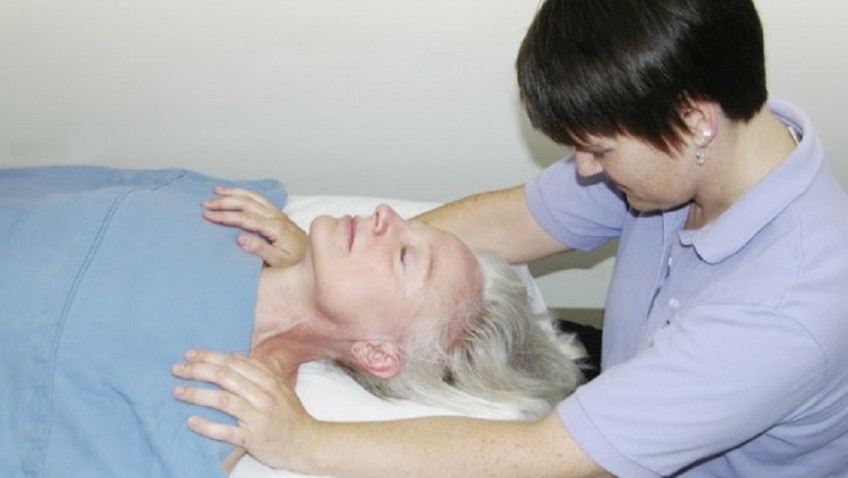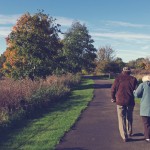Can “Reiki”, a complementary therapy now available through some GP surgeries, provide relief from pain where conventional medicines have failed?
Many of us in later life are living with one or more chronic condition , resulting in pain, anxiety and often depression. And when conventional medicines do not seem enough, complementary therapies are becoming increasingly accepted… with some now widely available through GP surgeries.
So if you have an elderly relative in pain or discomfort, what part can “Reiki” play in relieving their symptoms?
Specialist advice website www.myageingparent.com has just published a guide setting out the claims for Reiki and how families can help elderly relatives to try Reiki out for themself. As the website’s MD Deborah Stone points out, while there will always be arguments around scientific proof of its efficacy, there are enough testimonials from people who have benefited from the treatment to take it seriously.
“Anyone who has experienced a Reiki session will tell you what a relaxing and energising experience it can be, “ she says, “and simply feeling more relaxed and positive can improve how the person feels about themselves – potentially an important stepping stone to relieving the symptoms of a chronic condition, if not the underlying cause. That said, there are those who make bolder claims for Reiki’s healing abilities, not least kick starting the body’s own regenerative and self-healing powers.”
What is Reiki?
“Reiki” (pronounced ray-key) means “universal life energy” in Japanese, and it was in Japan where the hands-on therapy was first developed by Dr Mikao Usui in the early 1900s.
In common with many Eastern medicine systems, Reiki is based on the belief in a life energy which flows through all living things. In Japan, this energy is known as “ki”, in China it’s called “Chi”, and in India it is known as “prana”. Reiki therapists believe that they act as a channel for energy, and that they can balance this energy within the body to promote a more relaxed state and an improved sense of wellbeing.
There are no formal qualifications in Reiki – the tradition and knowledge is passed from Reiki masters on to their students. Although Reiki is not part of any religious practice, therapists believe that Reiki can contribute to spiritual growth and this concept may or may not appeal to your older parent.
What to expect at a Reiki session
Treatment normally lasts between 30 and 60 minutes. Patients remain fully clothed and can either sit on a chair or lie down on a couch. After discussing any health issues with the patient, the Reiki practitioner will move their hands on, or just above, the patient’s body in a sequence of positions, which are held for two to five minutes, until the practitioner feels a change in the flow of energy.
Reiki therapy can be performed on the whole body, or focused on a problem area. There is no massage or manipulation; and while some people report feeling some tingling or warmth during a Reiki session, others feel nothing at all.
Most people undergoing Reiki will experience a calm feeling; sometimes, there can be an emotional response and even tears , brought on by the person feeling more relaxed and open.
Fees for Reiki treatments vary, but you can expect to pay around £30 an hour from private practitioners. Reiki therapy may be available in some hospitals, NHS community services and support groups, particularly for cancer patients.
Possible benefits of Reiki for older people
“It’s important to manage expectations about what your elderly relative may get from a Reiki session,” says Deborah Stone. “While Reiki practitioners may not be able to diagnose or cure diseases, some find it very helpful in alleviating the symptoms of many health problems – such as pain and anxiety – and even helping to speed recovery from some ailments. And, of course, for socially isolated older people, there is also the added benefit of having one-to-one time with the therapist… of being listened to and of having respectful physical contact.”
As Reiki is not recognised as conventional medicine, it is advisable for advice to be sought from a GP before proceeding with any complementary or alternative therapy. If you are thinking of organising Reiki therapy for your older parent or relative, here are some useful resources:
The NHS Choices website on how to choose a complementary medicine practitioner www.nhs.uk/livewell/complementary-alternative-medicine/pages/choose-cam-practitioner.aspx
The Reiki Association – www.reikiassociation.net
The Reiki Council – www.reikicouncil.org.uk/
The UK Reiki Federation – http://www.reikicouncil.org.uk/
myageingparent.com’s guide is available HERE





